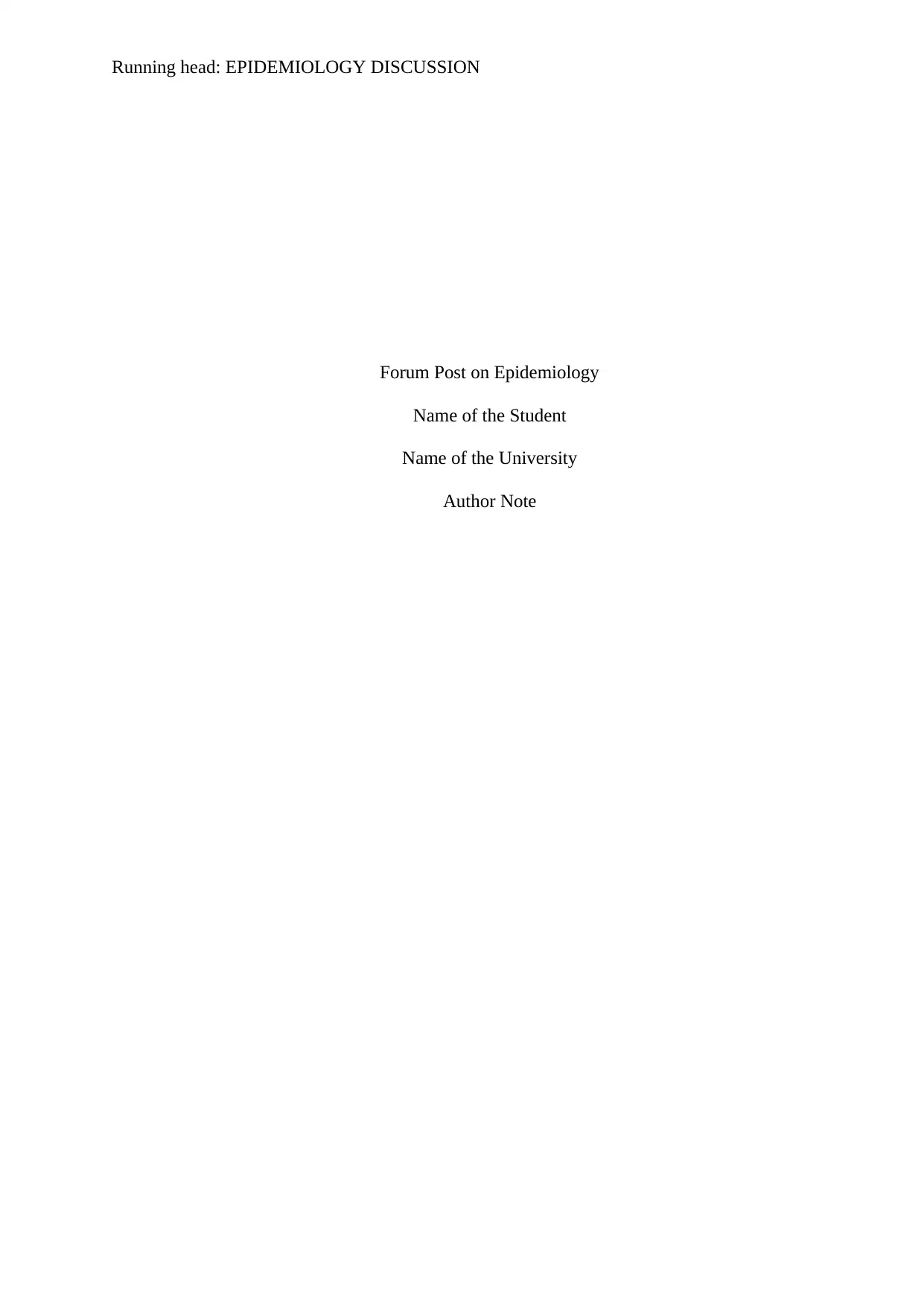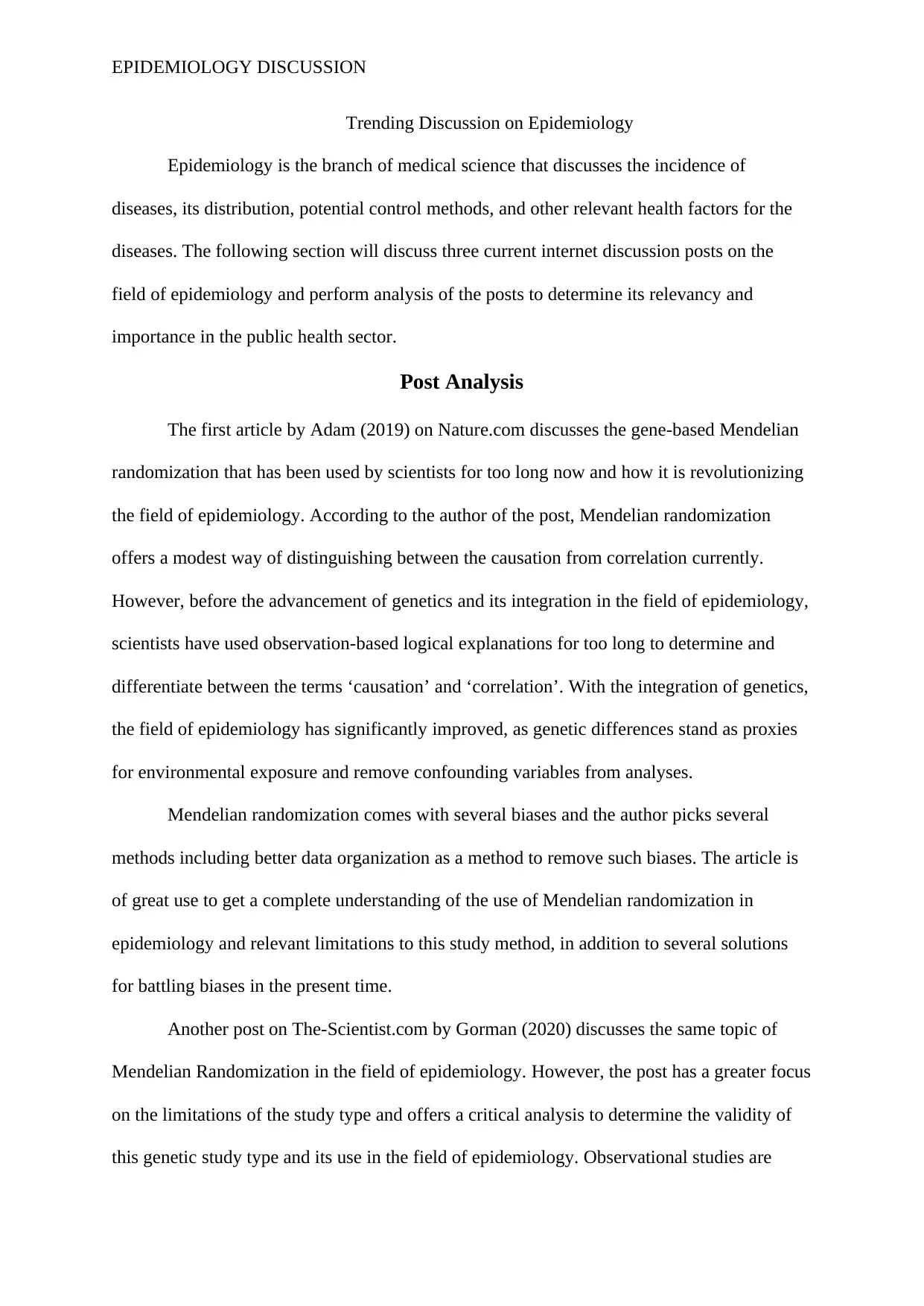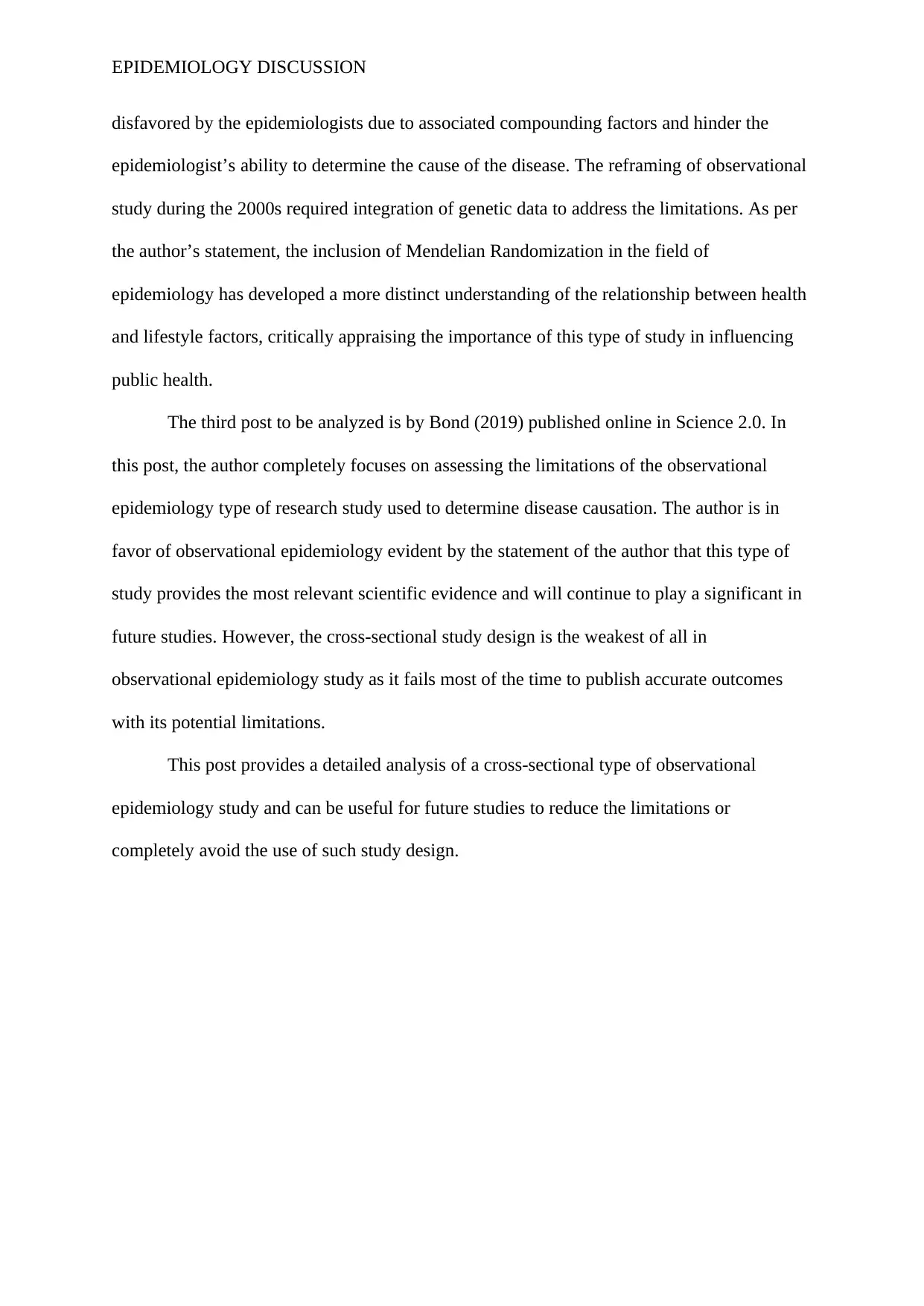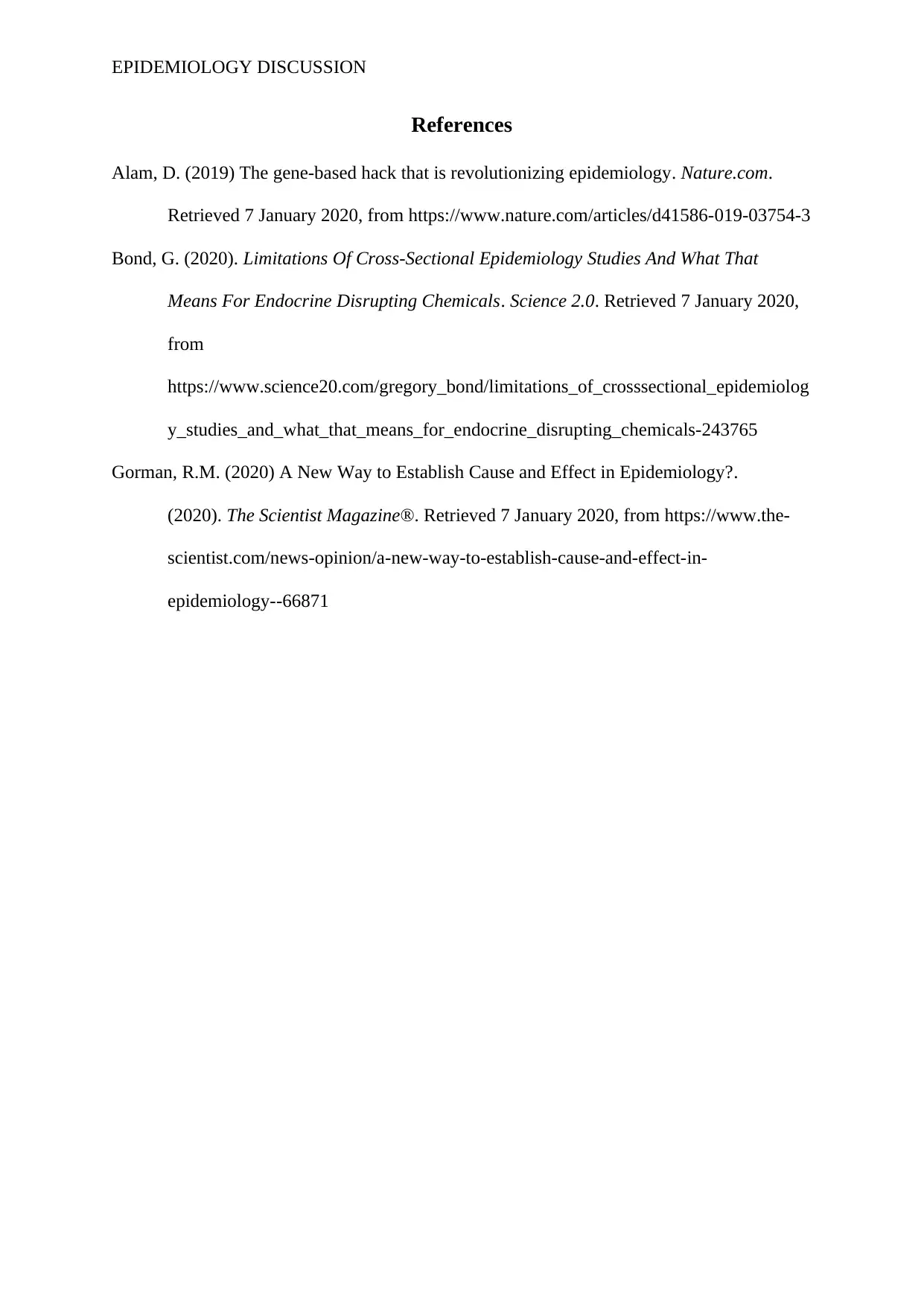Epidemiology Discussion: Mendelian Randomization Analysis
VerifiedAdded on 2022/08/28
|4
|680
|19
Discussion Board Post
AI Summary
This discussion forum post provides an analysis of three articles discussing the use of Mendelian randomization and observational studies in the field of epidemiology. The post by Alam (2019) highlights how Mendelian randomization, with the integration of genetics, is revolutionizing epidemiology by differentiating causation from correlation and overcoming confounding variables. Gorman (2020) discusses the limitations of Mendelian randomization, focusing on its validity and its impact on understanding the relationship between health and lifestyle factors. Finally, Bond (2019) assesses the limitations of observational epidemiology, particularly cross-sectional studies, and their relevance in determining disease causation. The author favors observational epidemiology and provides a detailed analysis of the cross-sectional study design. The post offers insights into the strengths and weaknesses of different study designs, contributing to a more profound understanding of epidemiological research and its implications for public health.
1 out of 4







![[object Object]](/_next/static/media/star-bottom.7253800d.svg)